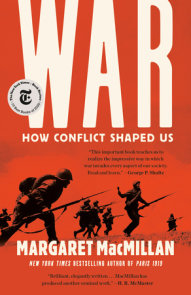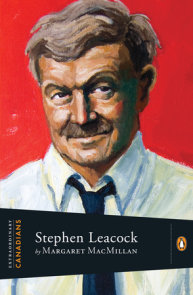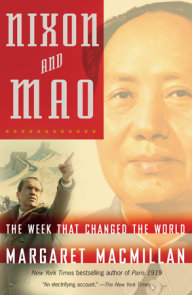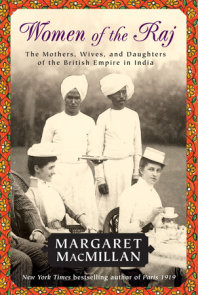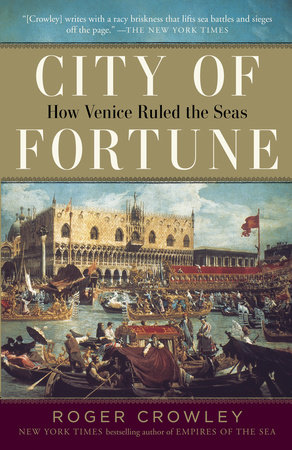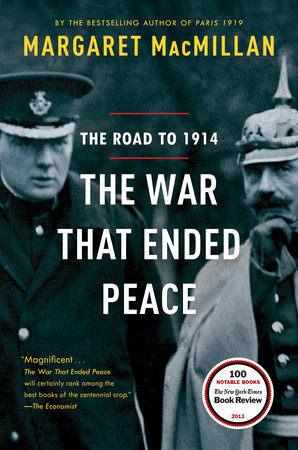

The War That Ended Peace
By Margaret MacMillan
By Margaret MacMillan
By Margaret MacMillan
By Margaret MacMillan
By Margaret MacMillan
Read by Richard Burnip
By Margaret MacMillan
Read by Richard Burnip
Category: World Politics | World War I Military History | European World History
Category: World Politics | World War I Military History | European World History
Category: World Politics | World War I Military History | European World History | Audiobooks

-
$25.00
Jul 29, 2014 | ISBN 9780812980660
-
Oct 29, 2013 | ISBN 9780812994704
-
Oct 29, 2013 | ISBN 9780804127417
1919 Minutes
Buy the Audiobook Download:
YOU MAY ALSO LIKE
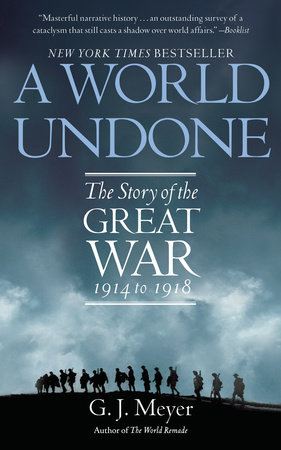
A World Undone
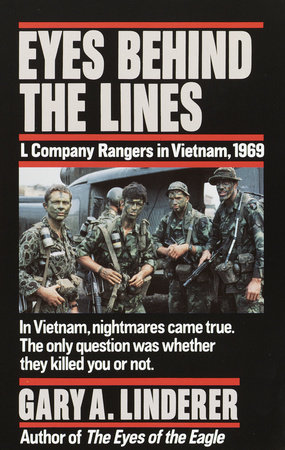
Eyes Behind the Lines
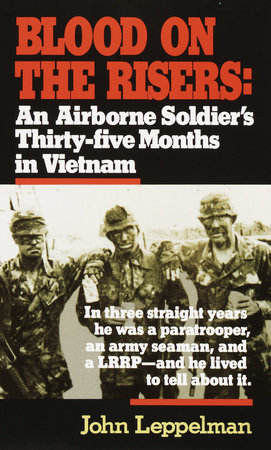
Blood on the Risers
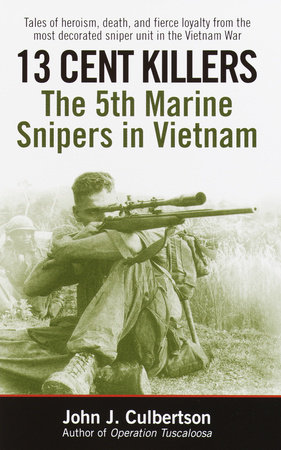
13 Cent Killers
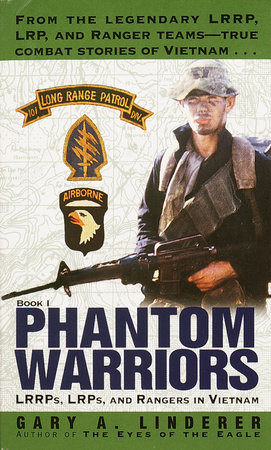
Phantom Warriors
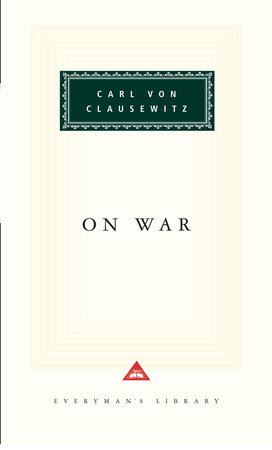
On War
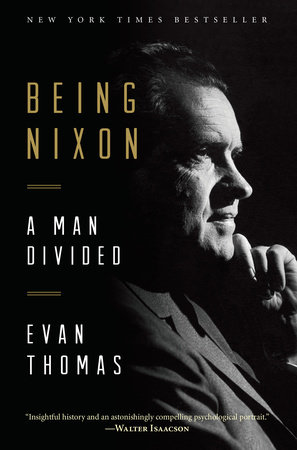
Being Nixon
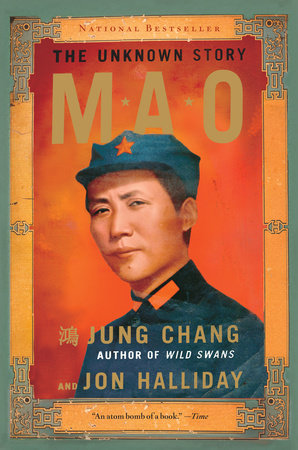
Mao
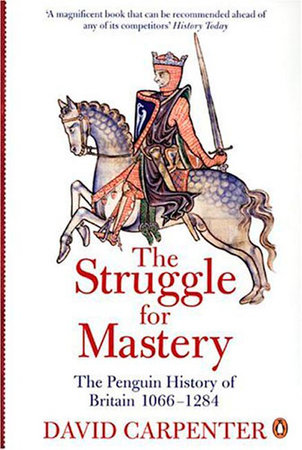
The Struggle for Mastery
Praise
“One of the strengths of The War That Ended Peace is MacMillan’s ability to evoke the world at the beginning of the twentieth century. . . . MacMillan’s portraits of the men who took Europe to war are superb. . . . The logic of MacMillan’s argument is such that even now, as she leads us day by day, hour by hour through the aftermath of the assassination of Archduke Franz Ferdinand in Sarajevo on June 28, 1914, we expect some statesman or other to jump on the lighted fuse. . . . ‘There are always choices,’ MacMillan keeps reminding us.”—The New York Times Book Review (Editor’s Choice)
“Magnificent . . . The War That Ended Peace will certainly rank among the best books of the centennial crop. . . . [MacMillan] deftly navigates the roiling currents and counter-currents of the pre-war decades. . . . The Great War had a kaleidoscope of causes. Ms. MacMillan tackles them all, with [a] blend of detail and sweeping observation.”—The Economist
“The debate over the war’s origins has raged for years. Ms. MacMillan’s explanation goes straight to the heart of political fallibility. Almost every assumption made by the leaders of Europe turned out to be wrong. Elegantly written, with wonderful character sketches of the key players, this is a book to be treasured.”—The Wall Street Journal
“Masterly . . . marvelous . . . Historians have long argued about why the war started and whether it could have been avoided. . . . Margaret MacMillan’s new book The War That Ended Peace: The Road to 1914 will be a welcome addition to these debates. . . . She takes a long look and examines the many forces that had been moving Europe in the direction of a war for a quarter century. . . . MacMillan is a master of narrative detail and the telling anecdote and this makes for a lively read. She does not break new ground in this book as much as present an exceptionally complex story in a way that will appeal to the general reader. Those looking to understand why World War I happened will have a hard time finding a better place to start.”—The Christian Science Monitor
“Highly readable.”—The Nation
“Margaret MacMillan’s The War That Ended Peace [stands] out because [it reflects] the immensely complex web of politics, power, and relationships that made war possible, if not inevitable.”—The Daily Beast
“A magisterial 600-page panorama . . . a lively and sophisticated overview of the international crises that shook prewar Europe . . . MacMillan is a wry and humane chronicler of this troubled world. . . . The historian’s task, she suggests, is not to judge but to understand. . . . As MacMillan observes in a closing sentence that is well worth taking to heart, ‘there are always choices.’”—Christopher Clark, London Review of Books
“[A] richly textured narrative about World War I . . . addressing the war’s build-up . . . MacMillan tells this familiar story with panache. A major contribution, however, is her presentation of its subtext, as Europe’s claims to be the world’s most advanced civilization ‘were being challenged from without and undermined from within.’ . . . MacMillan eloquently shows that ‘turning out the lights’ was not inevitable, but a consequence of years of decisions and reactions: a slow-motion train wreck few wanted but none could avoid.”—Publishers Weekly (starred review)
“A first-rate study, necessary for all World War I collections. Highly recommended.”—Library Journal (starred review)
“Everything can be lent a veneer of inevitability, but history rarely works in such a linear manner. But MacMillan, famous for her scholarship on the peace concluding WWI, avoids this trap. She shows, again and again, that events could have run in any number of different directions.”—Booklist
“Thorough . . . lively . . . Exhaustive in its coverage of diplomatic maneuvering and the internal political considerations of the various nations, the book includes comprehensive discussions of such motivating issues as Germany’s fears of being surrounded, Austria-Hungary’s fears of falling apart and Russia’s humiliation after losing a war with Japan.”—Kirkus Reviews
“The War That Ended Peace tells the story of how intelligent, well-meaning leaders guided their nations into catastrophe. These epic events, brilliantly described by one of our era’s most talented historians, warn of the dangers that arise when we fail to anticipate the consequences of our actions. This is one of the finest books I have ever read on the causes of World War I.”—Madeleine Albright, former secretary of state
“With sure deftness, Margaret MacMillan manages to combine excellent history with elements of the cliff-hanger. You keep hoping that, at the last moment, one of those idiot leaders of 1914 might see the light and blink before it’s too late. No one is better equipped to recount this story than Margaret MacMillan.”—Sir Alistair Horne, author of The Price of Glory
“In this epic tale of human folly, Margaret MacMillan brilliantly explores the minds of the flawed, fascinating men whose misguided decisions led to a conflagration that few wanted or believed would actually happen. The War That Ended Peace is a must-read book for our time.”—Lynne Olson, author of Those Angry Days
“Once again, Margaret MacMillan proves herself not just a masterly historian but a brilliant storyteller. She brings to life the personalities whose decisions, rivalries, ambitions, and fantasies led Europe to ‘lay waste to itself’ and triggered decades of global conflict. Hers is a cautionary tale of follies a century in the past that seem all too familiar today.”—Strobe Talbott, president, Brookings Institution
“The War That Ended Peace is a masterly explanation of the complex forces that brought the Edwardian world crashing down. Utterly riveting, deeply moving, and impeccably researched, Margaret MacMillan’s latest opus will become the definitive account of old Europe’s final years.”—Amanda Foreman, author of A World on Fire
21 Books You’ve Been Meaning to Read
Just for joining you’ll get personalized recommendations on your dashboard daily and features only for members.
Find Out More Join Now Sign In








